This Hispanic Heritage Month, Midtown Houston is proud to unveil a powerful new sign wrap installation at Bagby Park: Roots “Raíces” by Venezuelan-born, Houston-based artist and educator Johnny Laín. The work transforms the beautiful 81-foot-long Midtown sign into a vibrant canvas that celebrates heritage, resilience, and community pride.
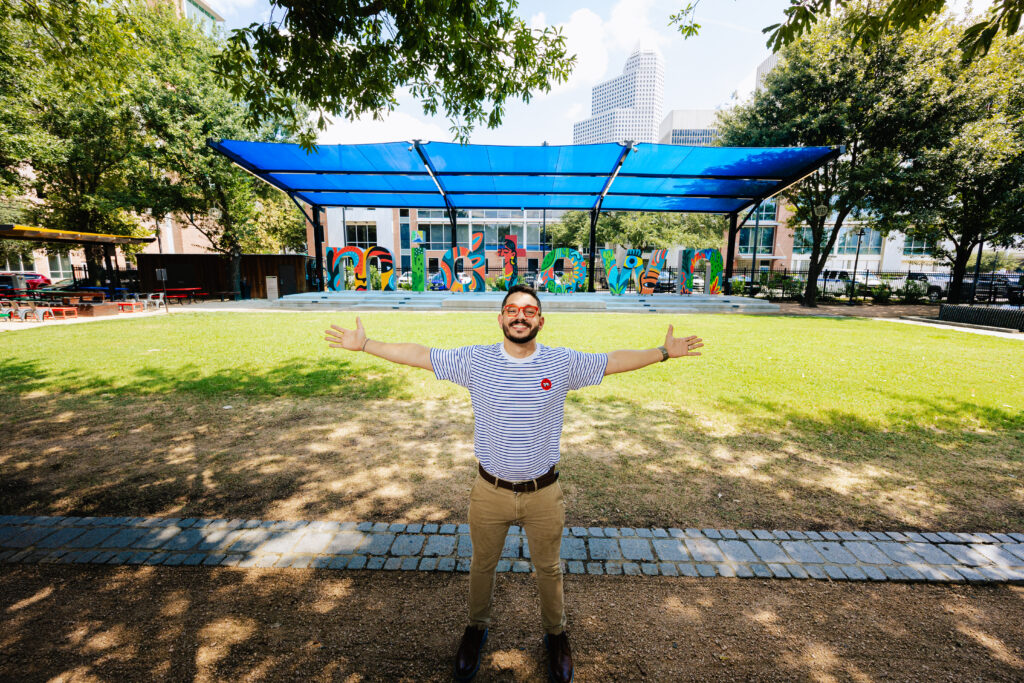
At its core, Roots “Raíces” is a tribute to the enduring spirit of Houston’s Hispanic and Latinx communities. Each letter of the MIDTOWN sign turns into a living mural filled with organic forms, bold colors, and symbolic patterns that reflect migration, memory, and adaptation.
Laín’s design highlights how heritage is not static, but alive and ever evolving. Inspired by Indigenous motifs, natural elements, and contemporary expression, the piece reflects stories of survival and renewal. Flowing shapes symbolize cultures blending across borders, while cactus imagery nods to resilience and the ability to thrive in even the harshest conditions.
“The colors, lines, and forms are meant to capture movement and energy, showing how culture is alive and constantly growing across borders and generations,” Laín explains. “For me, this piece is about honoring the past while embracing the present. It’s both personal and collective: a reflection of my journey and an invitation for others to connect with their own stories and heritage”.
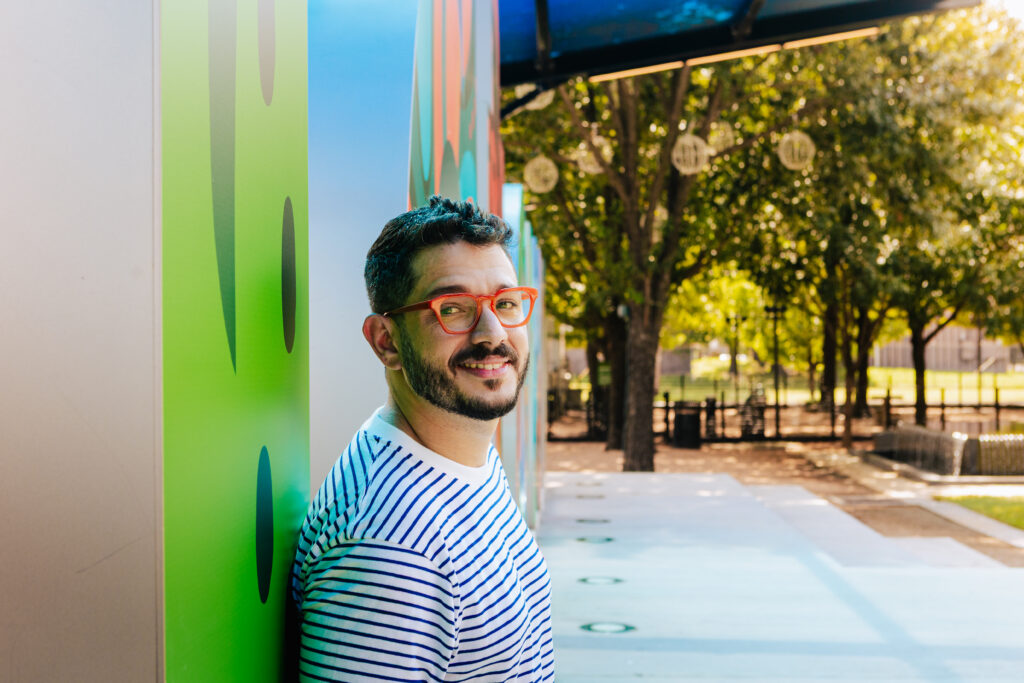
Johnny Laín’s life journey deeply informs his work. Born in Venezuela, raised partly in Spain, and rooted in Houston since 2013, Laín creates art that bridges cultures and generations. His artistic practice blends Latin American heritage, Afro-Caribbean culture, and contemporary influences, moving fluidly between mediums such as acrylics, black ink, and digital illustration.
Beyond the studio, Laín teaches high school art, guiding students to celebrate their roots and use creativity as a tool for self-expression and growth. His work has been featured in Houston’s cultural community through collaborations with MECA Houston and The T.R.U.T.H. Project, among others.
“Art is both therapy and dialogue,” Laín says. “It honors memory, identity, and community while sparking conversations about resilience, belonging, and the beauty found in everyday life”.
You can follow Johnny on Instagram and TikTok at @Lainhtx to see more of his work and creative journey.
By embedding his design into the heart of Midtown, Laín turns public art into a shared space of dialogue, resilience, and celebration.
Ultimately, Roots “Raíces” is both a celebration and a commitment: a recognition of Hispanic contributions that have shaped Houston and a call to continue shaping the future together through creativity and cultural pride.
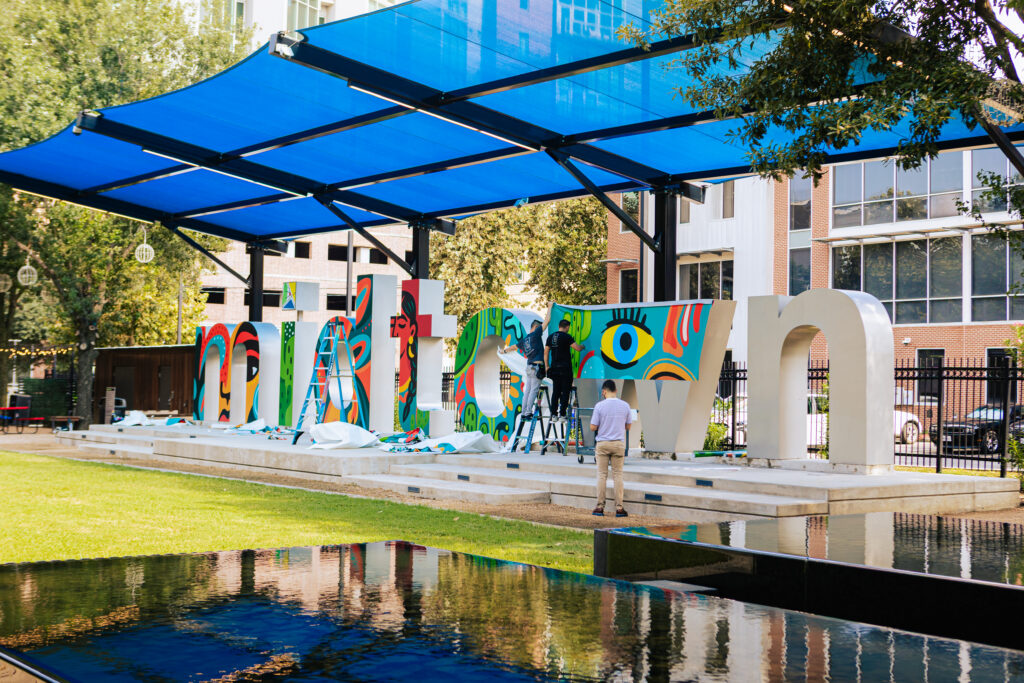
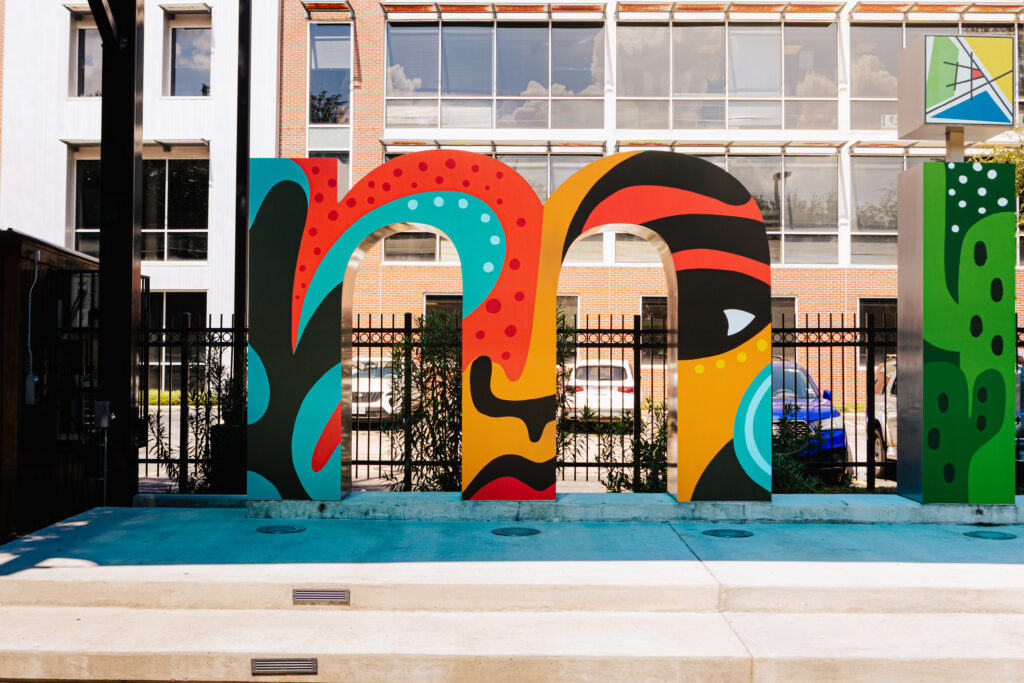
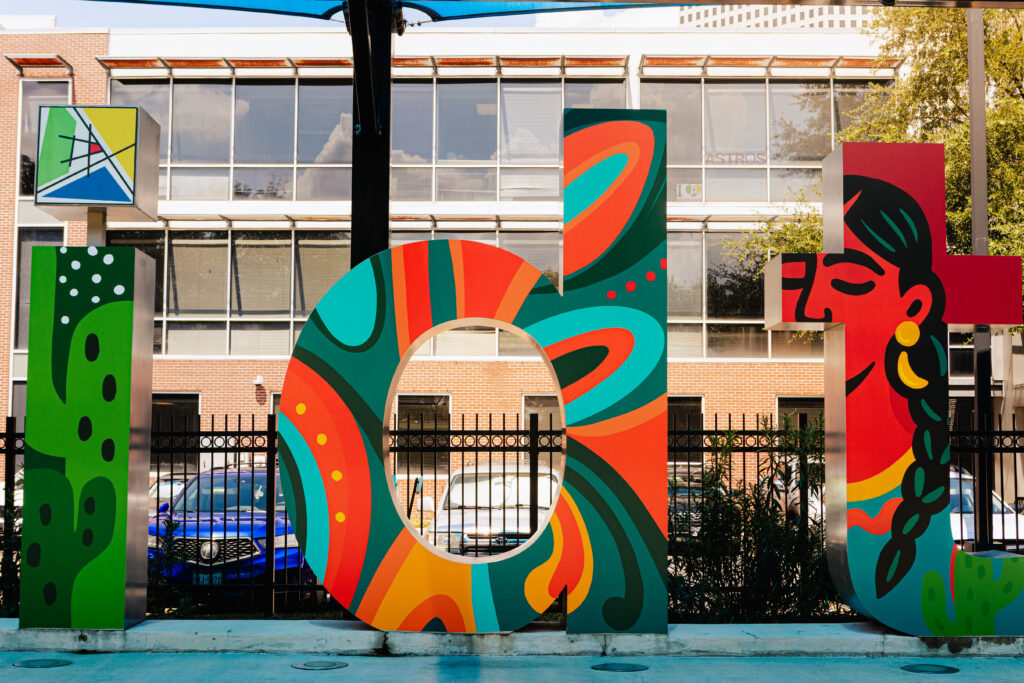
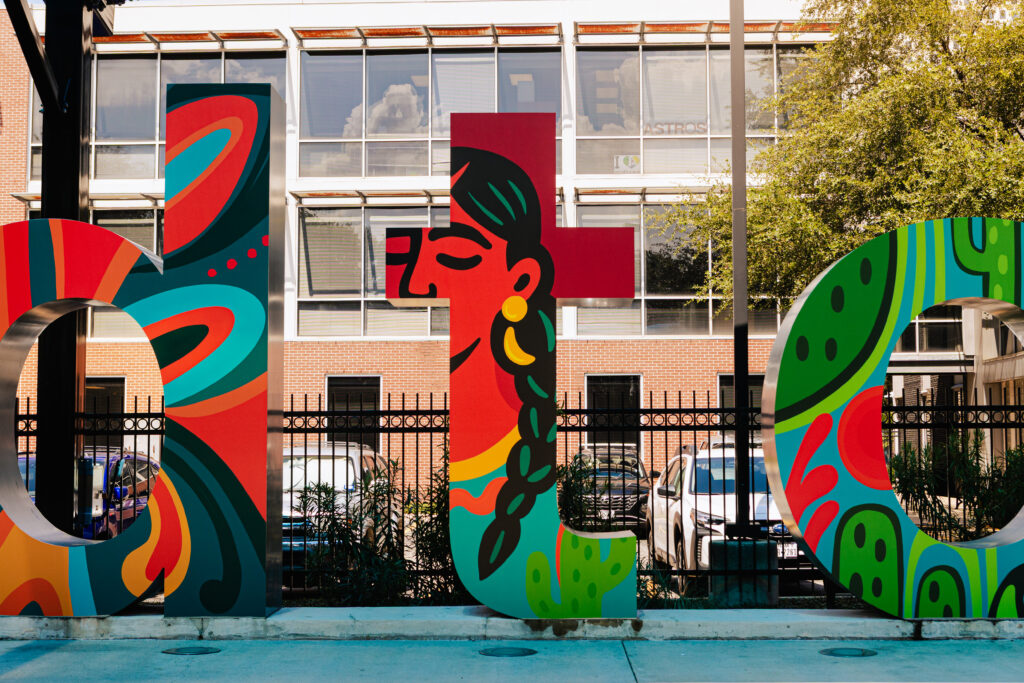
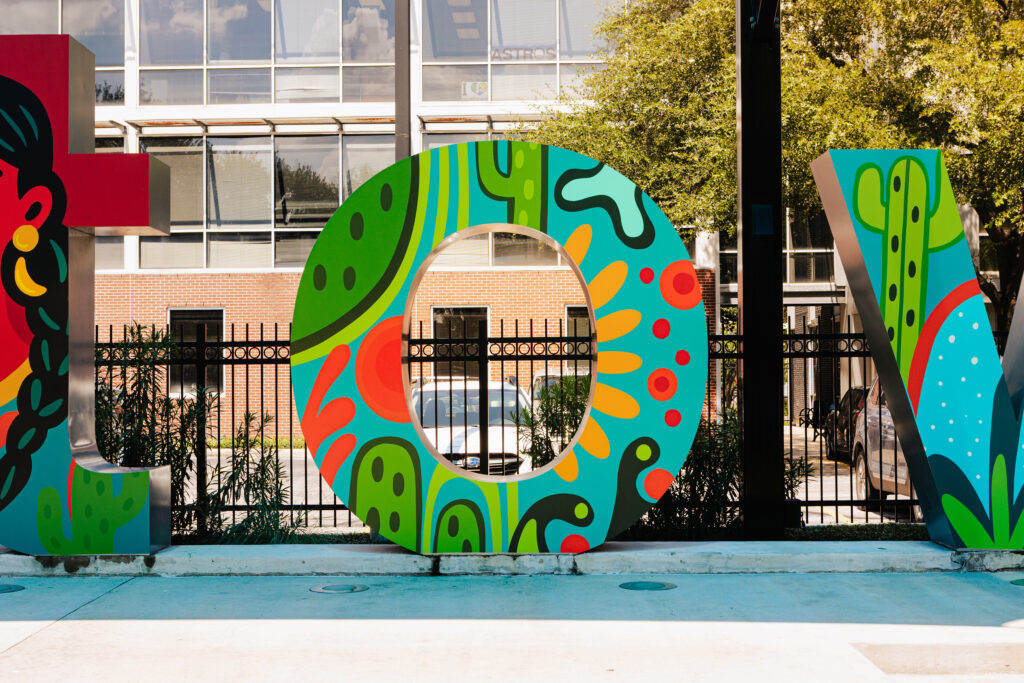
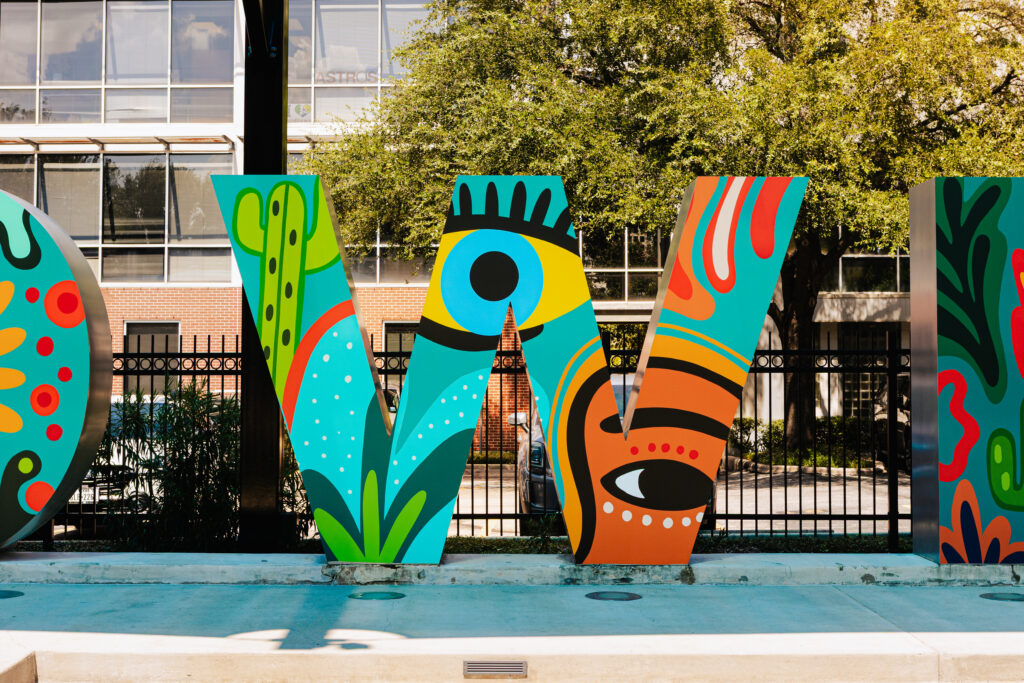
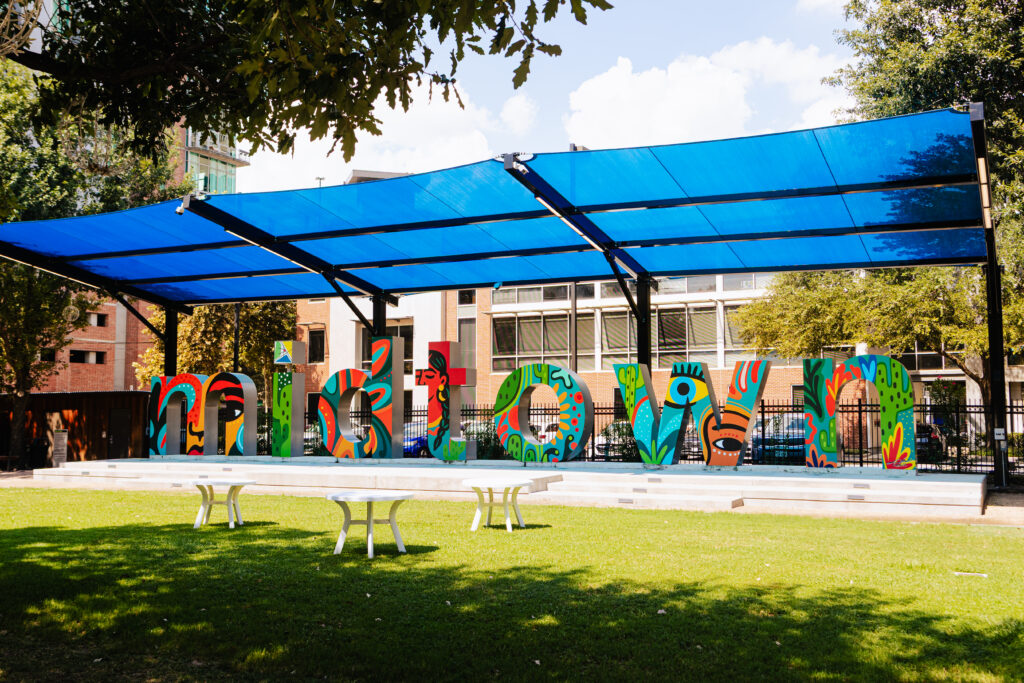
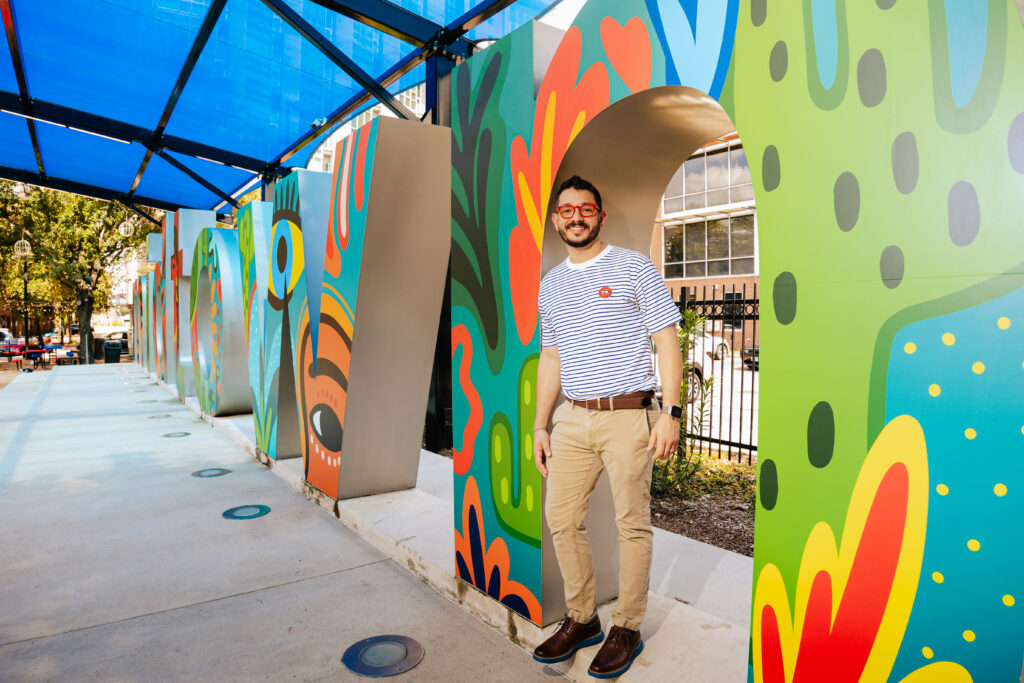
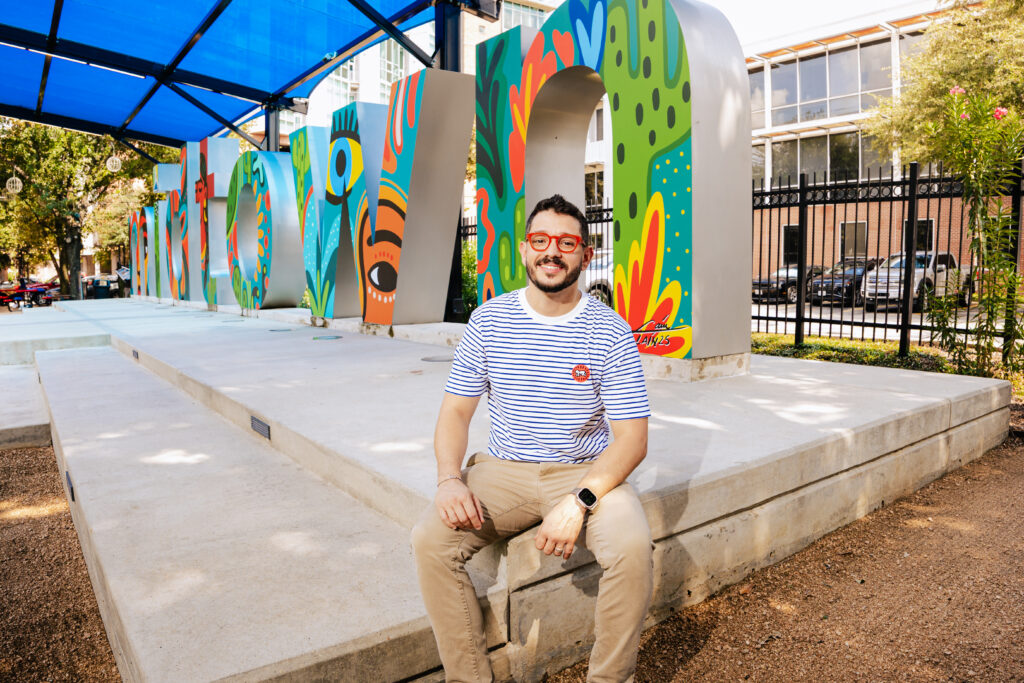
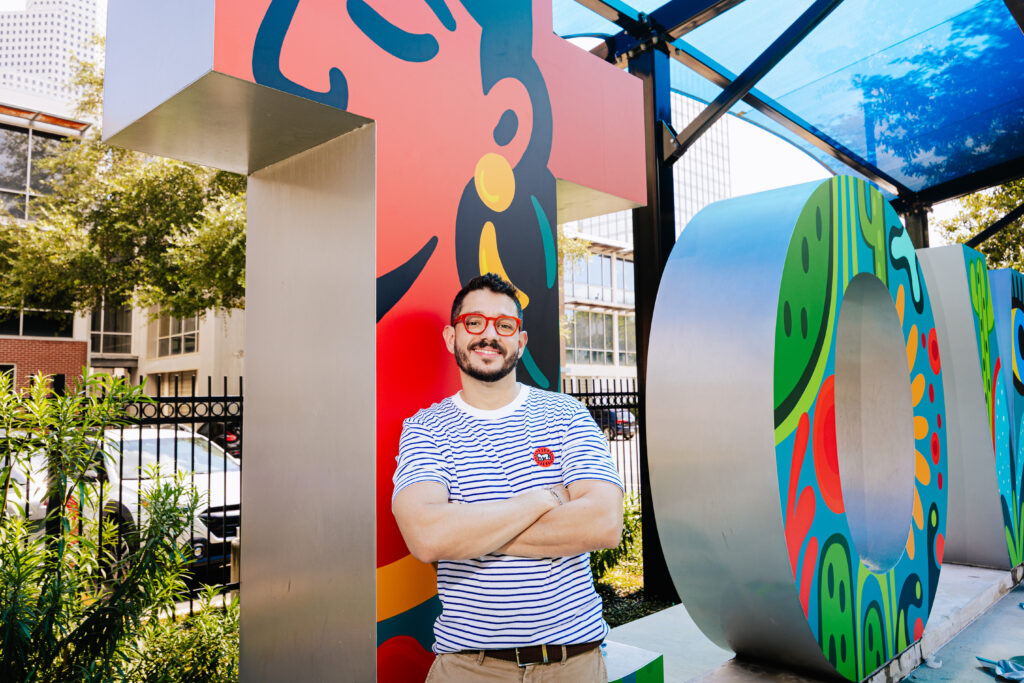
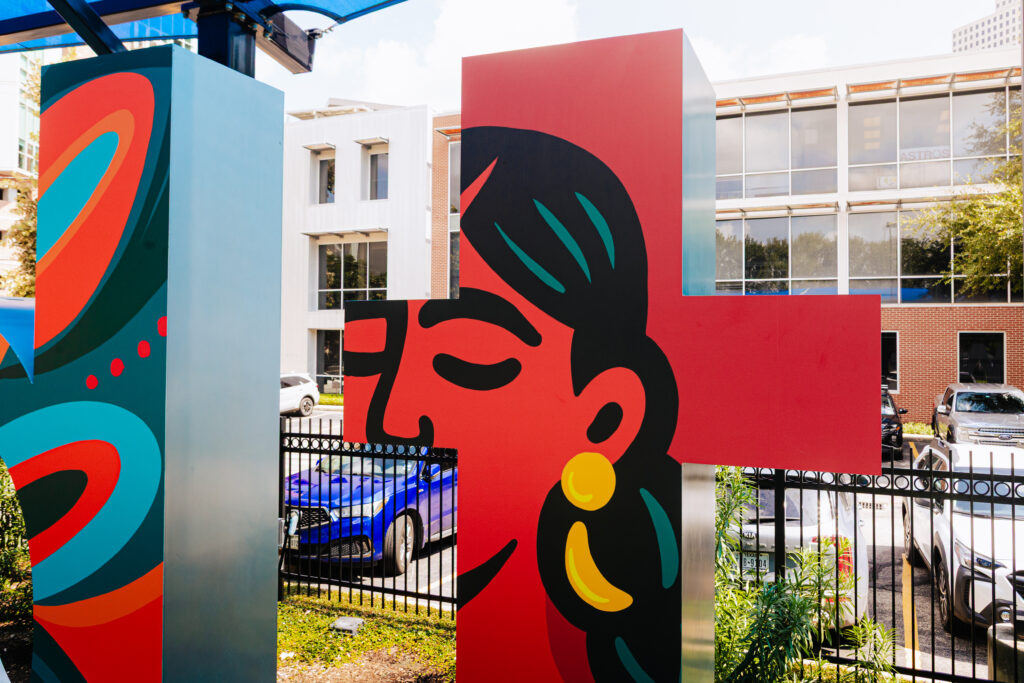
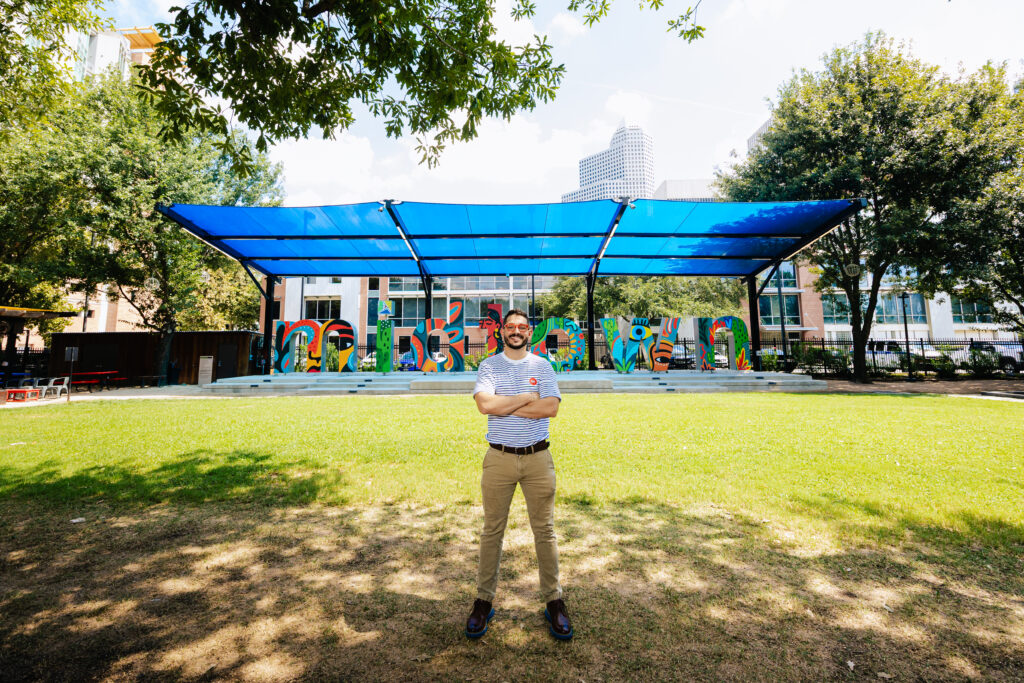
We invite you to experience Roots “Raíces” at Bagby Park in Midtown. On display through mid-October, this unique public art installation highlights the vibrancy of our community and the stories that shape it. Whether you stop by for a moment of reflection or to take in the beauty of the design, Roots “Raíces” offers a meaningful connection to Houston’s creative spirit.
Midtown Houston has long been a catalyst in supporting art in every form. Our community is a designated State of Texas Cultural Arts and Entertainment District (2012) and is celebrated for its many attractions, including picturesque park spaces, long-standing cultural arts organizations, impactful public art, and national award-winning projects. This installation is a project of the Midtown Cultural Arts and Entertainment District in association with the Midtown Management District, with generous funding provided by the Houston Endowment.
Visit Bagby Park (415 Gray St, Houston, TX 77002) to experience Roots “Raíces” in person.